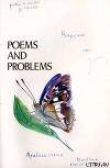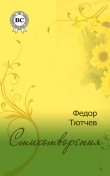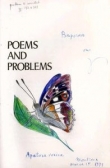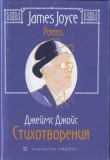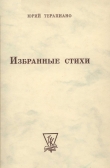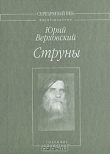A moongate in my wall: собрание стихотворений
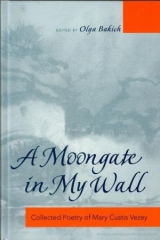
Текст книги "A moongate in my wall: собрание стихотворений"
Автор книги: Мария Визи
Жанр:
Поэзия
сообщить о нарушении
Текущая страница: 14 (всего у книги 19 страниц)
They took me to the door and showed
A narrow and a winding road,
Leading to wondrous things, that may
Be mine, if I but go that way.
I went, for I had naught to lose,
And saw no other road to choose.
And much the Powers freely gave
That I was fool enough to crave.
Beauty and Love and Youth I had,
And many friends who made me glad
That Higher Powers long ago
Had shown me just that way to go.
Yet often, oh, how often now
I want – if they but told me how —
To find that first wide-open door
And beg for just a little more.
June 1927
509. «It's eye for eye, and tooth for tooth…»
It's eye for eye, and tooth for tooth,
And even the Eternal Truth
For every cruel word I've said
Breathes vengeance on my head.
16 Apr. 1929
510. «I cast a rock into the well…»
I cast a rock into the well
And stood to listen how it fell.
How it went shooting through the deep.
Where frogs and water-serpents creep.
And as it reached the bottom black
I heard it give a sullen whack
And saw the bubbles at the top
And circles w’here 1 let it drop.
And now – I see the sky and sun
And I regret what I have done
And wonder if the silent stone
Remembers, where it lies alone
Among the creatures of the slime,
Its happier and brighter time —
And if it longs to see above
The sun, which I deprived it of.
17 Apr. 1929
511. «Like colored glass is fair…»
Like colored glass is fair
when the porch is gray,
so all my days were
till you went away.
Like rainbows in the sky
following after rain,
so is the thought that I
may meet you yet again.
But, oh, the endless years
that I don't see your face
are cold and lonely years
in a lonely place.
6 Dec. 1929
512. «Oh, tender dawn above the sombre pond…»
Oh, tender dawn above the sombre pond,
where great, green drooping weeping willows crowd
to touch the sleeping water; and beyond —
the golden turrets of a rising cloud.
Oh, gentle wind, sweet scented breath that stirs
this silent waking water, – and the lace
of willows, and green saplings, and brown burrs
framing its face!
What can the heart within a human breast —
what can it do with that taut golden string
calling for all the agony and unrest
which make men sing?
Weep in such hours of ecstasy, oh heart!
Be silent, oh dark heart, – you cannot cool
your burning thirst from that deep, glittering pool,
or reach that sky light where the willows part!
Nothing there is that you can do. Lie low,
hide on the soft black earth, in the wet grass,
breathe not when this mild wind begins to blow,
hear not, nor watch how the green ripples go,
that, seeing you – helpless and suffering so —
those stirring hours take pity on you and pass!
Shanghai, [Sept. 1934]
513. Dawn
So dawn creeps to dark waters, and so hope
to still, sick, sombre hearts, that vainly grope
throughout the night, not knowing that a day
is near, to end their sorrow and dismay.
How bright the ripples in the sudden glare
of morning, and the waking trees how fair!
Even my wingless heart can so forget
that it alone has not been lighter yet…
Shanghai, [Sept. 1934]
514. «If I had but a little common sense…»
If I had but a little common sense,
I would forsake you, 1 would travel hence
and maybe see, in lovely places, far,
that you were not the sky's most brilliant star.
Perhaps on lofty mountains I would seek
the flaming flower of the snow-clad peak,
or on some island in the sunny sea
forget the words that you have said to me.
There are so many wonders I could find,
that life would yet be bountiful and kind,
and going so I should not drop a tear,
– if I had sense…
But I have none, my dear.
Shanghai, 23 Oct. 1934
515. «It's not because you leave me that I weep…»
It's not because you leave me that I weep,
nor am I broken just because we part, —
but that the coin of friendship proved so cheap,
and that your word meant nothing in your heart.
Leave me now, go; I will not need you more.
Travel your way, while I shall walk my own;
Let not your conscience worry on my score:
I may be even stronger so, alone.
But should I ever meet you later on —
tired and sick and begging me for bread
with all your luck and earthly glories gone —
better for you if one of us were dead,
for I may turn and give a stone instead.
Shanghai, [1934]
516. To a Man Named Smith
Once in this world of mountain, wood and plain
my road crossed yours. We will not meet again.
But as a dawn breaks open sunlit skies —
so once we looked into each other's eyes.
In that brief hour the words we spoke were few,
and when you went, and I lost sight of you
still all the birds were trilling, and the day
shone just as golden as I walked my way.
Poor foolish heart – why should it cry and cry
because you crossed the verv hour as I?
Shanghai, [1934]
517. «Quiet the waters were, – do you recall?..»
Quiet the waters were, – do you recall? —
quietly did the waters rise and roll
in low and gentle swells, when one fine day
you dropped your anchor in my slumbering bay.
Softly the breezes from the western sky
swept over silent sands where you and I
gazed at the sea – and not a shadow fell,
nor came a cloud to break the golden spell.
How can I wonder now, with you no more,
that black the waters rise, and roar, and roar?
23 Feb. 1936
518. «High in the mountains, where the grass is cool…»
High in the mountains, where the grass is cool,
we tied our horses by an emerald pool,
and as they drank, as they neighed in glee,
we two sat motionless, and speechless, – we.
Upon the shining flanks of your black steed
you watched the water flicker, bead by bead;
you never raised your eyes, yet well you knew —
that all the while 1 only thought of you.
Dear dream forgotten, dream that was so frail!
The evening sky was cloudless, calm and pale —
could I have guessed, as we resumed that trail,
that every star would wane, and every stream
run dry and silent, as in a by-gone dream?
23 Feb. 1936
519. Falling Star
Star as you fell through the blue evening air
when I stood watching you, silent and thrilled,
I was supposed to have breathed a word of prayer
that some deep wish I had might be fulfilled.
But, star, oh, – white, round star, – I saw you fall,
breathlessly saw the light behind you trailed,
and I forgot the earth I trod, and all
earthly desires and wishes, – and I failed…
Bitter my sorrow now, and sore regret
not to have grasped the chance the day it came!
But such was your swift sudden spell, that yet
if others fell – I still would do the same!
Shanghai, [1936]
520. «I'm often dreaming…»
I'm often dreaming
that I unfurl
my tall wings, gleaming
like mother-of-pearl,
and cut my tether,
and take to flight,
with each small feather
glistening white;
but, oh, I waken,
and, to atone,
breathless and shaken
fall, like a stone,
and see – a token
of earthly things —
they're broken —
my shining wings!
[1936]
521. «I am a stranger here. Leave me alone…»[233]233Variant in the fourth line of the first stanza in the manuscript: «and hill and meadows from my solitudes.» The manuscript indicates that Mary Vezey planned to include another stanza between the first and the second stanzas; only one line was written in brackets: «In our tall forests we had stately firs.»
[Закрыть]
I am a stranger here. Leave me alone.
My eyes are tired of your streets of stone,
your tower houses; I am used to wood
and hill and meadows and to solitude.
All now is ended – all the wild birds flown,
and stars burnt out which had so brightly shone —
all the tall stately firs stand bare and dead
and silent lies each empty riverbed.
Only the still brown rocks, moss-covered, keep
their watch where silver wavelets curl and creep,
and that same sky, sunless and cold and grey,
hangs, – as the morning when I sailed away.
Shanghai, 1936–1937
522. «I hope from where you sit or lie…»[234]234The Norma Jean to whom this poem is dedicated has not been identified; perhaps it was Marilyn Monroe, whose real name was Norma Jeane Morrison.
[Закрыть]
Norma Jean
I hope from where you sit or lie
that you can see a patch of sky
at night, with angels flitting by,
each lighter than a sigh.
I hope that thru your window pane
you see trees, dripping in the rain,
or stooping low as under strain
where heavy snow has lain.
That you can watch a billowy cloud
sailing, like some white galleon proud,
and birds around it, crying loud,
ever a joyous crowd;
I hope that you may never tire
of watching sunlit skies on fire.
27 Nov. 1951
523 Nocturne(«White clouds…»)[235]235Variant in the last stanza in the manuscript: «But in her tower / high-walled, / the knight's young daughter /enthralled /forgetful of the hour/ silently watches/ the silver splotches / upon the water.»
[Закрыть]
White clouds
Remote
Like little explosions
Climb the sky and float
Above the black erosions
Of the castle moat.
Behind the grey parallelogram
Of his castle wall
The aged knight
Snores, for he doesn't really give a damn
At all
For the beauty of the night.
But in her tower
The knight's young daughter
Forgetful of the hour,
Silently watches
The silver splotches
Upon the water.
29 Mar. 1955
524. Impressions at the Opera (a true story)
Three dowagers with silver tresses
and silver foxes over pale-blue dresses
floated into their box,
fox after fox,
and settled down,
like pillows stuffed with eiderdown.
And Salvatore Baccaloni,
as Bartolo up on the stage,
though usually quite the rage,
seemed not as fat,
nor half as funny.
21 Feb. 1956
525. «It is usually very still on that day…»
It is usually very still on that day,
which comes at different times in different places;
came in the end of October in the place where I lived.
Very still and cold, and then, toward evening,
the air is suddenly warmer.
Nature stands still, you can hear the earth breathe,
the trees reach out and wait.
Stars that had been very brilliant
all at once turn opaque.
It is then that the first snowflake of the winter, always
large and slow, is wafted, like a small parachute, down
upon the expectant earth,
in hushed silence.
27 Feb. 1956
526. «With folded wings he sat and took a rest…»
With folded wings he sat and took a rest
upon a branch not far from where his nest
was hidden in the thicket from sharp eyes
and sharper claw and long,
deep in a wood of aspen and of beech
where sunrays rarely reach,
where stillness lies
and shadows hang.
Quietly he sat, small, gray and soft,
colorless lump of life, alone, aloft,
seen and admired by no one.
Then he spread
his wings,
most powerful among such minute things,
and, gray no more
but golden in the sun, he rose to soar,
and then he sang…
February 1956
527. «Nothing is left to write of any more…»[236]236Po Chii-i: Bo Juyi in contemporary transcription (772–846), a Chinese poet of the Tang dynasty
[Закрыть]
Nothing is left to write of any more,
all that there is to say was said before:
all is recorded – every human breath.
The poets have discussed God, love and death,
the seasons and the land and water here,
cities around us, and the atmosphere,
creatures from the amoeba to the auk,
including beings that can sing and talk.
All you need do is listen, gratefully,
to Swinburne, or Verlaine, or Po Chu-i.
7 Mar. 1956
528. Nocturne («Late twilight in October…»)
Late twilight in October.
Stillness hangs
above primeval marshes like spun glass.
Escaping lightly from the reaching arms
of scrawny birch, the moon,
opaque and naked,
drops her seventh mist.
No rustle stirs
the elderberries. Sorrowful, a loon
raises his pointed head among the blades
of marsh grass; even he does not invade
the silence with habitual complaint.
This is when
suddenly, passing high above, departing cranes
cry out between the earth and moon
urgently, clearly, for a rapid moment;
the marshes bear their soft
provocative and wistful voices,
high in the air, yet ultimately close;
then they are gone.
And in their wake
the first large timid snowflakes
dim the moon.
15 Feb. 1957
529. «There is something you want to say…»[237]237Variant in the third line of the fourth stanza in the manuscript: «cry loudly.»
[Закрыть]
There is something you want to say —
thoughts gurgling in your brain,
words choking your throat.
Say them, say them before you stop breathing,
see the darkness converging upon you
from the sky – from the shore – from the water —
The circles upon the water grow large and flat
and disappear altogether,
and the surface is silent.
Speak out – call loudly
and say all those turbulent words,
cry lustily
so that the shores will echo,
then whisper softly
those last compassionate words,
and all will be dark, dark.
1 Mar. 1957
530. «There was hoarfrost on the lawn this morning…»
There was hoarfrost on the lawn this morning
at dawn.
The seagulls were flying inland from the ocean,
to the warm earth and the grass.
They were gray in the early light
against the November sky.
1957
531. Night Dance
Little dead children, candles in their eyes,
uprooting earth, and clanging through staid skies,
remembering their ermine-mantled days,
all guillotined too soon,
dance on the lawn
where night dreams spawn
unmindful of the gaze
of the thick-skulled mongol cheek-boned moon.
Dance, slithering sprites
in this transparent trance
through all your promised perfumed nights
with well-earned mirth
which sly time pilfered on your withering earth!
Dance in the tear-soaked grass
dangling each tinkling somewhere-living heart
as void eyes dart
to where the stolid unbelieving old
grow by the snarling oak roots in a silent mold
buried en masse.
Disdain and disregard the sod-bound throng.
There is a song
composed about you and your life goes on
dancing long nights upon a moonstained lawn.
30 Oct. 1958
532. «Suddenly, I'm awake…»
Suddenly, I'm awake —
now, when my heart is sagging
and when my death, set for the take,
creaks round the nearest hill in her sure wagon.
Quite unexpectedly, the sky blows warm
as when cold day
breathes sudden fire instead
after a powerful and all-uprooting storm
risen from its day bed.
And as I stand
groping and reaching with my lips and hand,
mouth open in an agony of wanting
to fling long smouldering words that have been haunting
my loosely used, oh, many-wasted lips,
– I see the sun that dips
into the catchall of horizon and I flay
the sunless air to hold the night at bay
and rise and leave
the rock I stand on as I reach the eave
of the lowering, blackening sky above my head —
and I am dead.
30 Oct. 1958
533. Lot's Wife[238]238English variant of the Russian poem «Жена Лота»; see poem 377.
[Закрыть]
I am Lot's wife. I couldn't walk away
up foreign sands, away from that poor land
where every stone was warm from my own touch
and every door and window held my shadow,
where I had walked those narrow streets of Sodom.
There I had lived among familiar people
and talked and had my various human dealings
with neighbor women and with men who traded
and knew me well and knew my husband Lot.
Though truly they had differed with our thoughts
and knew not God as Lot and I had known Him
and wouldn't listen to His words of warnings,
– they weren't worse than I: I didn't listen.
I couldn't follow Lot on that safe trail
hearing the wrath of vengeance on my town,
hearing the fall of rocks and quake of hillside,
hearing the roar of all-devouring flame,
the crying agony of men and women:
I couldn't run away: I stopped and turned —
What matter that the price I paid was life,
was immortality?
Perhaps in that brief moment
some friend or enemy before he died
breathed easier because he glimpsed, half-blinded,
through fire and smoke, beneath a fallen pillar,
my shaking arms stretched in a last farewell?
1958
534. «Come to classroom, padre, while the students…»
Come to classroom, padre, while the students
are not yet gathered for their next assignment.
Come with me, padre, I will show you something
for which I beg you to donate a moment.
Your brothers, padre! See, – upon the tables —
laid out and all prepared to be dissected.
Oh, yours and mine. Just shut the door now, quiet…
The overburdened, very good professor
is right now having one last cup of coffee
within the fold of his distinguished household.
There – long, grey-white ones. How they must have worried
and how they must be cold in this dank classroom.
This is my thought (– will you forgive me, padre,
for buttonholing you between the wardroom s
where you disseminated consolation —)
– This is my thought: perhaps they had no kinfolk
to say goodbye and tuck them in for sleeping.
Perhaps you missed them as they lay there dying.
You and your colleagues; stand here in the doorway
and make a sign above these proud dead people,
say a few words, – because you have connections —
to make it dignified, this their departure,
as their last bell rings and their train pulls out.
(This is not the beginning:)
The quiet one are lying on their tables,
all wrapped in white, all swaddled white like babies
(born just a life ago, just a life, – whither is it gone
now, that they are speechless, motionless,
sightless, loveless, selfless?)
Suddenly a fire alarm sounds.
Noiselessly then the people wrapped in white,
white-swaddled, shoeless, soundless, faceless, warily
step one by one onto the fire escape
and slither down, procession wise, to safety
one after one, pouring from out their window
winding lightly down, white sheets that wrap them trailing;
down the black crooked iron stairway
comes the procession, in disorted angels
showing no faces —
to escape the fire.
piched the ground, the earth, the safety,
And, having reached the ground, the earth, the safety
they stop and stand and stare in scared amazement —
What do they do now? Whither do they slither?
Now they are safe, in what direction do they turn?
1958
535. Imitation[239]239Kwan-Yin: Guanyin in contemporary transcription, the Chinese goddess of mercy, literally «the one who listens to sounds», i.e., to requests and supplications.
[Закрыть]
536. «Once on the Moika lived a man…»[240]240
A rose quartz vase shone on her dresser, and
the sandalwood immortals stood, all seven,
imported from a pine and dragon land
once governed by the Son of Heaven.
Upon her cold blue wall
was hung a single silken-tasseled scroll
brush-painted on parchment,
with craggy mountains and a waterfall
– the prized possession of her studio apartment.
And, head benignly bowed, Kwan-Yin in jade
graced her teak night stand and her mystic soul.
Yet somehow this decor forever made
the impression of stage props for a miscast role.
As if these things were images in a glass
that traveling by reflect their face and pass
– a hollow echo's alien report
from a forbidden city's empty court.
Moika Street is in St. Petersburg. Variants in the manuscript: in the second line «an oldster – he had loads of books», in the third line «and knew so many people. Yet», and in the eighth line «We'd grasp each other just like that».
[Закрыть]
Once on the Moika lived a man —
an oldster – who had stacks of books,
and knew this one, that one. Yet
that's not the reason why my friend
would urge me – on the run – to come
and meet him, but because he thought
that meeting would bring joy to both.
We'd grasp each other in a flash,
we share one sorrow, speak one tongue,
the shade of a forgotten bard!
I planned to go so many times,
but rain, some business, or «too late»,
«not in the mood», «he's indisposed» —
and next I heard it: «He has died».
My visit cancelled now, for good,
and who can tell me «it's put off?»
[1950s]
537. The Snake
Silent all its life, it produces beautiful
music after death.
The earth is dry, the summer has been hot.
Dead russet stubble bristles in the rocks
of my small garden, few and pale the blooms
on gently tended shrubs.
The air is still.
Without a rustle over sand and clay,
graceful and grey, slithers a winding snake
and disappears between the cracks of stone,
small silent creature, harmless, in its home.
Night smoothes away day's blemishes and scars,
and grasses reach to feel her cooling hand.
I pick a banjo from my wall, to strum.
Its tightly covered snakeskin body sings.
[1950s]
538. Goodbye for Now[241]241Por V.V. see nole on poem 54. Variants in (he manuscript: in the first line of (he first stanza «You turned from the road and w ent away. I said goodbye to you, but that was for now"; in the first line of the third stanza „Or on some bridge as I cross a golden strait"; in the fourth and fifth lines of the third stanza «I will suddenly see / a glimpse of your face rushing toward me“. Temple of Horrors: a temple in Shanghai. Corraterie: see note on poem 393.
Viipuri: also known as Vyborg, a city and port in the Gulf of Finland, the «eastern capital» of Finland, seized by the Soviet Union in 1940.
[Закрыть]
For V.V.
You swerved from the road and you went away. I said goodbye to you,
but that was for now;
We will meet again, though we do not know yet where or how.
Perhaps in this room where I write. You will open the door
– oh you won't need to knock, you can hurry in as you have before
because I will always wait.
Or on some roseate bridge as I cross a golden strait
at sunset when over the bar
the white fog enters warily into the bay
you will ride in the other direction and I will see
a sudden glimpse of your face rushing toward me
expected and unexpected, as in a dream…
Or perhaps very far
in the hill of Manchuria covered with cedars and grapes on the lower
slopes,
where the tiger lilies (remember those tiger lilies?)
grow thick on the valley floor
you will wade toward me across the shallow mountain stream
– as before?
We shall meet again. You will see.
Someday our lives will find
a pattern familiar to us, a pattern so designed
as to bring us close somewhere in this vast world – oh, yes, vast still
though almost all discovered and charted, brook, tree and hill.
You and I
will catch up with one another walking perhaps outside
Shanghai
in a field near the Temple of Horrors where the purple idols stare
with bulging eyes…
And it may be too
as I turn the corner off Corraterie around the fountain where
geraniums flame
that you
will be doing the same
and you and I will meet
where the old watchmaker keeps his crack-in-the-wall on that cobblestone
street.
For every wall has a door. I shan't despair.
In Viipuri at Christmas I don't yet know what year
(or even century if we're still living here)
as I watch the skaters circle the pond blue frozen
when the stars begin to ring from the frost at some hour chosen
you will appear
somehow somewhere
in what shape? – even that is not given me to know.
Over the globe bright miniature flags pinned, saying
that we have stood, lived, walked together long ago
at each pricked point. We will meet again
because 1 know that you, not only I,
visit them often nor ever will cease to fly
to all these places or cross the sea by ship or earth by train
and even jog by donkey on covered cart over the parched and unpaved
China plain…
And someday under one such miniature marker grown to be
a banner swaying
in the blue wind across the entire sky
you will meet with me
and then… after th at… only then we will say
goodbye.
7 June 1963

